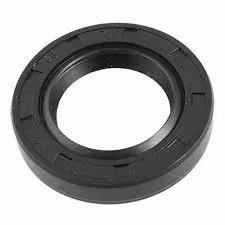10 月 . 10, 2024 15:03 Back to list
oil seal rubber
Understanding Oil Seal Rubber A Critical Component in Machinery
In the vast landscape of industrial machinery and automotive engineering, oil seals play a pivotal role in ensuring optimal performance and longevity of equipment. At the heart of these seals is oil seal rubber, a specially formulated material designed to withstand the harsh conditions of various operating environments. This article explores the significance of oil seal rubber, its applications, and the factors to consider when selecting the right oil seal for your machinery.
What is Oil Seal Rubber?
Oil seal rubber is a synthetic elastomer that is specifically engineered to provide a reliable barrier against the escape of lubricating oils and greases while preventing the ingress of contaminants such as dust and water. The material is crucial for maintaining the integrity of rotating shafts and components in various machinery, such as engines, gearboxes, and hydraulic systems.
The most common types of rubber used for oil seals include nitrile rubber (NBR), fluorocarbon rubber (FKM), and silicone rubber (SI). Each type of rubber has its unique properties, making it suitable for different applications. Nitrile rubber is popular due to its excellent resistance to oil and temperatures ranging from -40°C to +100°C. On the other hand, fluorocarbon rubber excels in high-temperature and chemical resistance, making it suitable for more extreme environments.
Applications of Oil Seal Rubber
Oil seal rubber is used across a diverse range of applications in various industries. Some of the most common applications include
1. Automotive Industry In vehicles, oil seals are integral in engines to prevent oil leaks and protect sensitive components. They are found in crankshaft seals, camshaft seals, and transmission seals, ensuring that the lubricants remain contained and the engines operate efficiently.
2. Industrial Machinery In industrial settings, machinery relies on oil seals to maintain lubrication and prevent contamination in hydraulic pumps, compressors, and gearboxes. By ensuring that oils remain inside the components, oil seal rubber helps improve the overall efficiency and lifespan of the machinery.
3. Aerospace In aerospace applications, the reliability of oil seals is paramount due to the extreme conditions faced during flight. The use of high-performance oil seal rubber is essential to prevent leaks and maintain system integrity, especially in hydraulic systems and actuators.
oil seal rubber

4. Marine Equipment Marine applications also benefit from oil seal rubber, where seals are employed to protect against the harsh environments of saltwater and high humidity. Seals must withstand not only oil but also provide resistance to corrosion and wear.
Factors to Consider When Selecting Oil Seal Rubber
Choosing the right oil seal rubber is crucial for maintaining the efficiency and durability of machinery. Here are several key factors to consider
1. Temperature Range It is essential to select a rubber compound that can withstand the operating temperatures of the environment. Some applications might involve extreme heat, while others might be subject to freezing conditions.
2. Chemical Compatibility Different types of oils, fuels, and other fluids can cause degradation of seal materials. It is imperative to assess the chemical compatibility of the rubber with the fluids involved in your application.
3. Size and Design The seal must fit precisely within the designated housing to function correctly. Ensure that the dimensions of the oil seal correspond to the specifications of the machining component it is meant to protect.
4. Environmental Conditions Consider the operating environment. For instance, exposure to ozone, UV light, or contaminants may necessitate the use of specialized rubber compounds to enhance durability.
5. Cost vs. Performance While it might be tempting to choose the least expensive option, it's crucial to weigh the long-term costs against performance. Higher-quality seals might reduce the frequency of replacements and maintenance.
Conclusion
Oil seal rubber serves as a vital component in the functionality of machinery across various industries. Its unique properties ensure the proper containment of lubricants while providing barriers against contaminants. By understanding its significance and carefully selecting the right type, businesses can enhance equipment performance and prolong the life of their machinery. With continuous advancements in rubber technology, oil seals will continue to evolve, driving efficiency and reliability in mechanical systems worldwide.